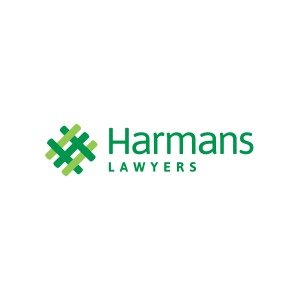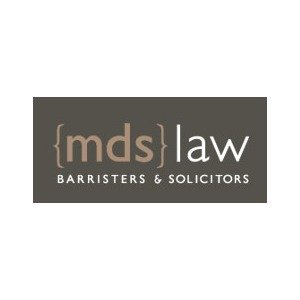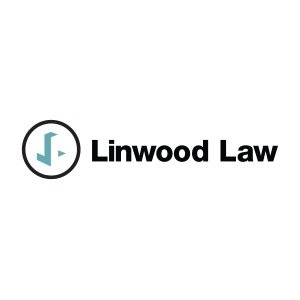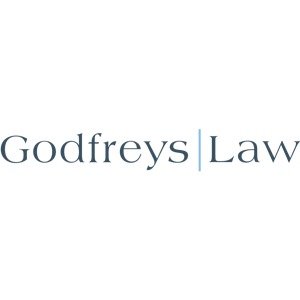Best Antitrust Litigation Lawyers in Christchurch
Share your needs with us, get contacted by law firms.
Free. Takes 2 min.
List of the best lawyers in Christchurch, New Zealand
About Antitrust Litigation Law in Christchurch, New Zealand
Antitrust litigation in Christchurch, New Zealand, involves legal actions related to the regulation of fair competition among businesses. This area of law is intended to prevent anti-competitive conduct that could harm consumers or restrict healthy market practices. Antitrust cases can deal with issues such as price fixing, market sharing, cartel conduct, abuse of market power, and other activities that stifle competition. While the term "antitrust" is used globally, in New Zealand, these matters are often referred to as "competition law" and are primarily governed by legislation such as the Commerce Act 1986. The local enforcement and oversight in Christchurch are conducted under New Zealand’s national legal framework, ensuring a competitive and fair marketplace.
Why You May Need a Lawyer
Legal advice is critical in antitrust litigation due to the complexity and significant consequences of these cases. Common situations where you may require legal help include:
- Receiving an investigation notice from the Commerce Commission
- Being accused of anti-competitive behavior by a competitor or regulator
- Suspecting a competitor of engaging in unfair business practices
- Seeking to challenge an anti-competitive merger or acquisition
- Negotiating settlements or leniency agreements in cartel matters
- Pursuing damages for losses caused by anti-competitive conduct
- Ensuring your business practices comply with local competition laws
Because antitrust cases can lead to hefty penalties, court orders, and reputational damage, having expert legal guidance greatly improves your chances of a favorable outcome.
Local Laws Overview
The primary legislation governing antitrust matters in Christchurch is the Commerce Act 1986. This law covers a range of anti-competitive conduct, including:
- Cartels: Agreements between businesses not to compete, such as price fixing or dividing up markets, are strictly prohibited.
- Abuse of Market Power: Businesses with substantial market power must not use that power to harm competition.
- Restrictive Trade Practices: Other arrangements or agreements that prevent, restrict, or distort competition are also regulated.
- Mergers and Acquisitions: Any business consolidation that may substantially lessen competition is subject to review and possible prohibition.
The Commerce Commission is responsible for investigating, enforcing, and providing guidance on these matters. Penalties for breaches can include significant fines and even criminal charges in cases of serious cartel conduct.
Frequently Asked Questions
What is antitrust litigation?
Antitrust litigation is the process of resolving disputes in court or through regulatory processes concerning breaches of competition or antitrust laws.
What laws apply to antitrust matters in Christchurch?
The main law is the Commerce Act 1986, which applies nationwide, including in Christchurch. It regulates anti-competitive behavior and mergers.
Who enforces antitrust laws in Christchurch?
The Commerce Commission is the primary government body responsible for enforcement and investigation of antitrust issues across New Zealand.
Can individuals or businesses bring an antitrust claim?
Yes, individuals or businesses harmed by anti-competitive conduct can file claims for damages or other remedies under the Commerce Act.
What are common examples of anti-competitive behavior?
Common examples include price fixing, bid rigging, market allocation agreements, and misuse of market dominance.
Are there criminal penalties for anti-competitive conduct?
Yes, serious cartel conduct can result in criminal prosecution, including significant fines and possible imprisonment for individuals.
What should I do if I am being investigated for antitrust violations?
Seek immediate legal advice. Cooperating with investigations and understanding your rights is essential, and a lawyer can guide you through the process.
How are mergers assessed under competition law?
Mergers are reviewed to ensure they do not substantially lessen competition. The Commerce Commission evaluates proposed mergers before they proceed.
What defenses are available against antitrust claims?
Defenses may include demonstrating that agreements have no adverse effect on competition or that the alleged conduct is justified by legitimate business purposes.
How long do antitrust cases take to resolve?
Cases can range from several months to years depending on complexity, the level of investigation required, and whether the case proceeds to court.
Additional Resources
If you need further assistance or information about antitrust litigation in Christchurch, the following resources may be helpful:
- The Commerce Commission - main enforcement authority for competition law
- The New Zealand Law Society - offers information and guidance on finding legal experts
- Community Law Canterbury - provides legal advice and support to Christchurch residents
- Ministry of Business, Innovation and Employment - offers policy and business compliance information
Next Steps
If you believe you are involved in or affected by an antitrust issue in Christchurch, New Zealand, consider the following steps:
- Document all relevant facts, correspondence, and agreements related to the matter
- Consult with a lawyer experienced in antitrust or competition law for tailored advice
- Cooperate with authorities, but do not make statements or admissions without legal counsel
- Review your business practices and ensure they comply with local competition laws
- If you suspect unfair competition but are unsure, seek a legal opinion to clarify your position
Acting quickly and seeking professional advice is the best way to protect your interests and ensure compliance with New Zealand’s antitrust and competition laws.
Lawzana helps you find the best lawyers and law firms in Christchurch through a curated and pre-screened list of qualified legal professionals. Our platform offers rankings and detailed profiles of attorneys and law firms, allowing you to compare based on practice areas, including Antitrust Litigation, experience, and client feedback.
Each profile includes a description of the firm's areas of practice, client reviews, team members and partners, year of establishment, spoken languages, office locations, contact information, social media presence, and any published articles or resources. Most firms on our platform speak English and are experienced in both local and international legal matters.
Get a quote from top-rated law firms in Christchurch, New Zealand — quickly, securely, and without unnecessary hassle.
Disclaimer:
The information provided on this page is for general informational purposes only and does not constitute legal advice. While we strive to ensure the accuracy and relevance of the content, legal information may change over time, and interpretations of the law can vary. You should always consult with a qualified legal professional for advice specific to your situation.
We disclaim all liability for actions taken or not taken based on the content of this page. If you believe any information is incorrect or outdated, please contact us, and we will review and update it where appropriate.

















